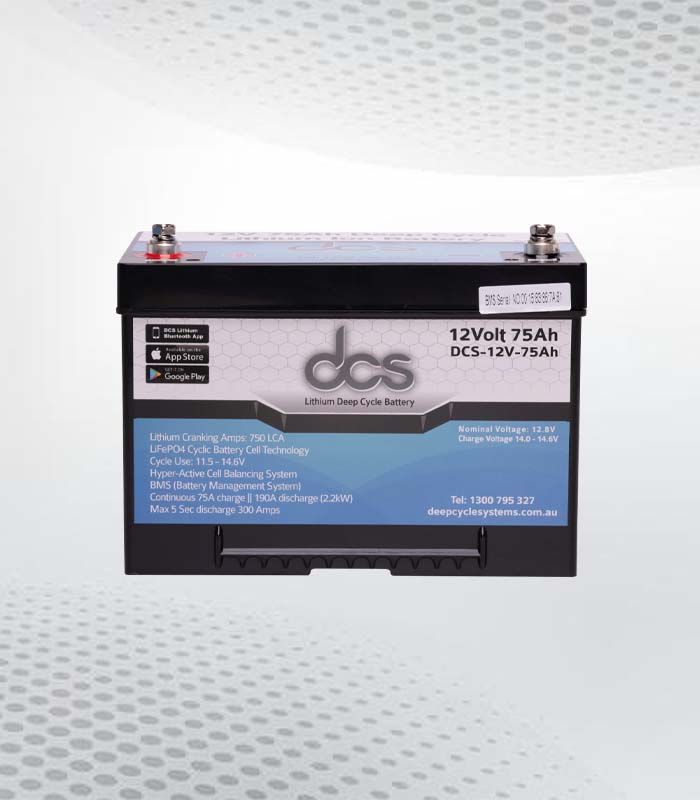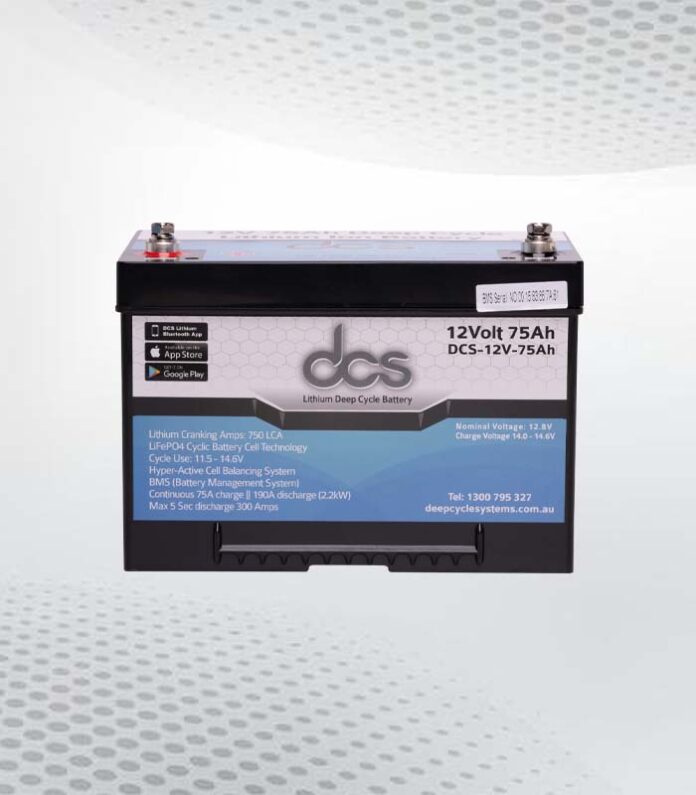Lithium car batteries are at the forefront of this transition as the world shifts towards more sustainable and efficient energy solutions. These powerhouses are revolutionizing the automotive industry with their lightweight, durable, and powerful characteristics and paving the way towards a more eco-friendly future. Whether you’re an avid car enthusiast or simply someone who’s looking for a reliable and efficient energy source for your vehicle, understanding the advantages of lithium car battery is crucial. Let’s explore the wonders of these innovative batteries and how they can power up your ride today.
Understanding Lithium Car Batteries and Their Advantages
Lithium car batteries, often dubbed lithium-ion batteries, have garnered widespread acclaim within the automotive sector for their exceptional energy storage capabilities. These batteries distinguish themselves from their lead-acid counterparts by delivering a potent combination of high energy density and remarkable longevity. This superior energy density means lithium batteries can store more electricity in a smaller package, making them ideal for electric vehicles (EVs) and hybrids where space and weight optimization is crucial. Furthermore, they exhibit a significantly lower self-discharge rate, ensuring they retain their charge for extended periods when not in use.
One of the standout features of lithium car batteries is their ability to withstand many charge/discharge cycles with minimal degradation in performance. This resilience translates into a longer useful life, reducing the need for frequent replacements and, by extension, lowering the long-term ownership costs. Additionally, these batteries can deliver a consistent power output over a wide range of temperatures, making them versatile and reliable in various climatic conditions. This combination of efficiency, durability, and versatility positions lithium batteries as a pivotal technology in the evolution towards more sustainable automotive energy solutions, underlining their critical role in the ongoing shift to electrification in the transportation sector.
The Remarkable Longevity of Lithium Car Batteries
One of the most defining attributes of lithium car batteries is their impressive longevity, which starkly contrasts with the lifespan of traditional lead-acid batteries. These innovative batteries are designed to endure anywhere from 2,000 to 5,000 charge-discharge cycles before exhibiting significant capacity loss. This resilience is pivotal for electric vehicles (EVs) and hybrid systems, where the charging frequency can be high.
The longevity of lithium batteries not only enhances the user experience by reducing the frequency of battery replacements and contributes significantly to their cost-effectiveness over time. Unlike their counterparts, lithium batteries maintain a higher level of performance throughout their life cycle, ensuring that the vehicle’s range and power do not diminish rapidly as the battery ages.
This sustained performance is a testament to the advanced technology behind lithium batteries, which includes robust management systems that optimize charging and discharging processes, further extending their life. The environmental impact is also noteworthy; longer-lasting batteries mean fewer resources are needed for battery production and recycling, aligning with the goal of a more sustainable automotive future. This durability is a cornerstone of what makes lithium car batteries a preferred choice for those seeking reliable, long-term energy solutions for their vehicles.
How Lithium Batteries Enhance Vehicle Performance
The integration of lithium batteries significantly boosts the dynamic performance of electric and hybrid vehicles. The high energy density inherent to these batteries equates to more substantial power, enabling vehicles to accelerate more quickly and achieve greater speeds. This is particularly beneficial in scenarios demanding rapid bursts of energy, such as overtaking or merging onto highways. Moreover, the efficiency of lithium batteries shines through their quick charging capabilities, allowing vehicles to cover more distance with minimal downtime. Drivers can anticipate extended travel ranges on a single charge, reducing the frequency of stops needed for recharging and making long trips more feasible.
Another critical aspect of lithium batteries contributing to enhanced vehicle performance is their consistent power output. Unlike traditional batteries, which may suffer from performance dips as they deplete, lithium batteries maintain steady power delivery until fully discharged. This ensures that vehicles don’t experience a drop in acceleration or power in critical moments. Additionally, the reduced weight of lithium batteries compared to conventional options further amplifies vehicle performance. This weight advantage contributes to improved agility and efficiency, allowing for smoother handling and optimized energy consumption, which is crucial for extending the driving range and maximizing the vehicle’s operational efficiency.
The Lightweight Advantage and Its Impact
The essence of lithium batteries’ appeal extends significantly beyond their power and durability; their lightweight nature is a pivotal asset, especially in the realm of electric and hybrid vehicles. This advantage is critical for optimizing vehicle efficiency — as the weight of a car decreases, the amount of energy required for acceleration and maintaining speed diminishes correspondingly. This direct correlation between weight and energy consumption underscores the importance of lightweight lithium batteries in enhancing vehicle performance.
In practical terms, vehicles equipped with lithium batteries benefit from increased agility and improved handling, contributing to a smoother and more responsive driving experience. The lighter load also reduces stress on the vehicle’s mechanical components, potentially extending the lifespan of parts susceptible to wear and tear.
Furthermore, the energy savings from the reduced weight contribute to longer driving ranges, a critical factor for electric vehicles aiming to match and surpass the convenience offered by traditional fuel-powered cars. This capacity for longer ranges on a single charge addresses one of the primary concerns surrounding electric vehicle adoption, making lithium batteries a linchpin in the transition to more sustainable modes of transportation. The lightweight nature of these batteries, therefore, not only enhances vehicle performance but also plays a crucial role in advancing the automotive industry towards a more efficient and environmentally friendly future.
Embracing Eco-Friendliness with Lithium Cranking Battery for 4WD
The push towards more sustainable practices in the automotive industry has spotlighted the role of eco-friendly technologies. Among these, lithium-cranking batteries for 4-wheel drives (4WD) emerge as a beacon of environmental responsibility. These batteries significantly reduce the carbon footprint associated with traditional automotive power systems. Unlike their lead-acid counterparts, lithium cranking battery for 4WD offers a cleaner alternative, minimizing the release of harmful emissions into the atmosphere. Their manufacturing process is also inherently more energy-efficient, further consolidating their status as a green choice for vehicle owners.
 In the realm of off-road adventures, where the robustness of every component is tested, lithium-cranking batteries stand out for their performance and minimal environmental impact. Thanks to their longer lifespan, the decreased need for frequent replacements results in lower waste generation and a reduced demand for raw materials. This aspect and their recyclability underscores the batteries’ contribution to sustainable practices in automotive energy solutions.
In the realm of off-road adventures, where the robustness of every component is tested, lithium-cranking batteries stand out for their performance and minimal environmental impact. Thanks to their longer lifespan, the decreased need for frequent replacements results in lower waste generation and a reduced demand for raw materials. This aspect and their recyclability underscores the batteries’ contribution to sustainable practices in automotive energy solutions.
Moreover, the shift towards lithium-cranking batteries aligns with the global movement to preserve our natural landscapes—the playground for 4WD enthusiasts. By choosing these eco-friendly batteries, drivers actively participate in a larger effort to mitigate environmental degradation, ensuring that the great outdoors remains vibrant and accessible for future generations.
Making the Switch: What You Need to Know
Transitioning to lithium car batteries involves a few important considerations to ensure a seamless switch and optimal performance. Initially, compatibility is key; verifying that your vehicle supports lithium battery technology is the first step. This involves understanding the specific requirements of your car or 4WD system and selecting a battery that matches these specifications. Size, power output, and type are critical factors to consider, as a mismatch can lead to suboptimal performance or even damage to your vehicle’s electrical system.
Another aspect to bear in mind is the cost. Lithium batteries typically come with a higher upfront price than traditional batteries. However, it’s essential to view this as an investment. The longer lifecycle, reduced maintenance needs, and improved energy efficiency of lithium batteries can lead to significant savings over time, offsetting the initial expenditure.
When purchasing a lithium battery, choosing a reputable brand is crucial. Look for manufacturers with a solid track record of quality and reliability. Additionally, a robust warranty and responsive customer support can provide your investment peace of mind and protection.
Lastly, consider the environmental benefits. Opting for a lithium battery reduces carbon footprint and supports the transition to more sustainable transportation solutions. By keeping these considerations in mind, you can make an informed decision that benefits both your vehicle and the environment.
The Future Is Electric: Lithium Batteries Leading the Charge
The electrification of the automotive industry is accelerating, with lithium batteries at the helm of this transformative journey. These batteries are not just the heart of electric vehicles (EVs) but the catalyst for a broader shift in how we think about transportation, energy storage, and environmental stewardship.
Technological advancements in lithium battery production continually enhance their capacity, efficiency, and charge times, making electric vehicles more appealing to a broader audience. The push for cleaner, renewable energy sources further underscores the importance of lithium batteries in the transition to sustainable transportation. As global awareness and regulatory pressures on carbon emissions increase, the automotive industry is leaning heavily into electric mobility, with lithium batteries providing the necessary power and reliability to make this shift possible.
The evolution of battery technology, including solid-state batteries, promises even greater safety, performance, and environmental improvements, ensuring that lithium batteries remain at the forefront of this electric revolution. As we navigate towards a future dominated by electric vehicles, the role of lithium batteries in shaping this new landscape is undeniably critical, heralding a new era in automotive design, functionality, and sustainability.
FAQs
Is it safe to use lithium batteries in cars?
Absolutely. Lithium batteries are engineered with advanced safety mechanisms to tackle common concerns such as overheating and potential short circuits. Adherence to the manufacturer’s maintenance and handling guidelines is crucial to ensure their safety and longevity.
Can I switch my conventional car battery to a lithium one?
It’s possible in many scenarios, but compatibility with your vehicle is essential. The specific energy requirements and compatibility with your car’s electrical system must be considered. Consulting a professional or vehicle manufacturer before switching is advisable to ensure a proper fit and avoid any potential issues.
What is the proper way to dispose of lithium car battery?
Disposing lithium batteries in regular trash is not an option due to their chemical composition and potential environmental impact. They require specific recycling processes. Local waste management facilities often provide guidelines and services for recycling lithium batteries, ensuring they are handled in an environmentally responsible manner.
Conclusion
Embracing lithium car batteries is not just a step towards enhancing vehicle performance; it’s a leap into the future of automotive technology. The unique power, efficiency, and durability combination of these batteries marks a significant evolution from traditional energy sources. As the automotive world continues to evolve, the advantages of lithium batteries underscore a commitment to innovation and environmental stewardship. The shift to lithium is more than an upgrade—it’s an investment in a sustainable driving experience and preserving our planet for future generations.
| Other Good Articles to Read |
| Blogs Rain |
| Cme Blog Spot |
| Garcias Blogs |
| Yyc Blogs |
| Guiade Blogs |
| Blogs-Hunt |
| Impact-Blog |
| Smarty Blogs |
| Ed Blog |
| Mo Blogs |
| Blogs Em |
| Blogs T |
| Related Business Listings |
| Contact Directory |
| Local Business Profiles |

